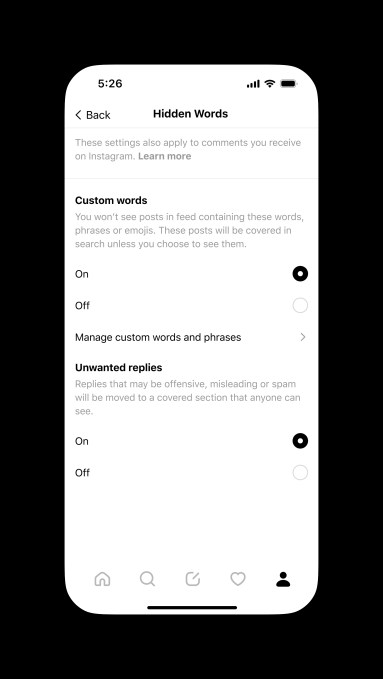Threads and Instagram head Adam Mosseri announced today that Threads is launching a new feature that lets users filter out words and phrases from their feeds and mentions. The “Hidden Words” feature automatically mutes common words, phrases, and emojis that might be offensive to users. In addition to these preset filters, users can add their own custom words and phrases in the settings. Users can turn these settings off at any point in time.
Earlier this week, dating app Hinge launched its own “Hidden Words” feature (yes, with the same name) to block requests with comments that contain unwanted words.

Threads said that the feature will filter out content from both the “Following” and “For You” feeds, search results, profiles, and replies to posts.
Controls for quoting posts
The Meta-owned social network already allows users to control who can reply to their posts: anyone, profiles you follow, or mentioned people only. Threads also has the option to restrict who can mention you in their posts, replies, and bio: everyone, profiles you follow, or no one.
Now the company is planning to introduce similar controls for quote posts. Threads said that it will soon let you limit who can quote your posts. Additionally, users will be able to manually unquote their posts as well.
The company’s rationale behind these new controls for quote posts is that it wants to restrict unwanted interactions.
“Since quoting a post is one of the most visible ways to connect with someone on Threads, it was important for us to give people more agency over who can engage with them and help reduce unwanted interactions,” a company spokesperson said.
Separately, Threads is also testing a way to mute notifications for interactions with posts. While some of these features aren’t available just yet, the company is still shipping new features at a rapid pace as it has started testing a way for people to archive posts automatically.

During Meta’s earnings call on Wednesday, Mark Zuckerberg mentioned that Threads has over 150 million monthly active users.































Comment